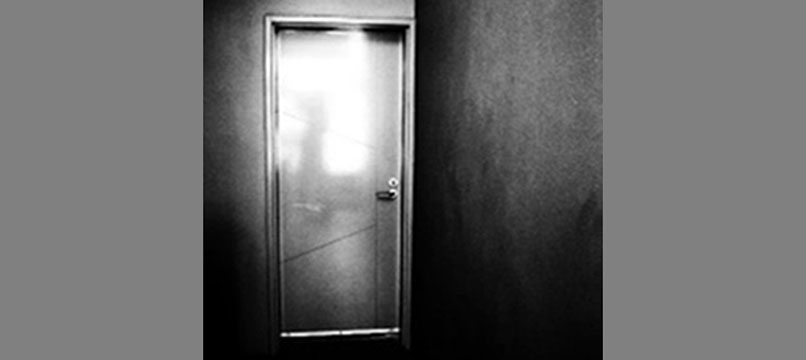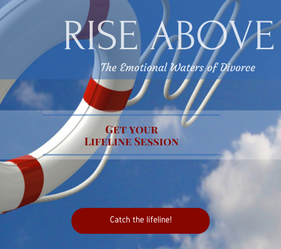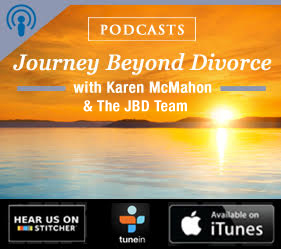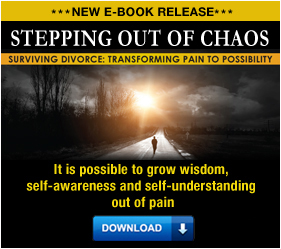By Karen McMahon
Divorce is messy; it is a chaotic and painful, confusing and uncertain time. Our natural tendency is to want to blame someone or something when things are not going according to our plans and, in divorce things clearly have not gone according to plan. Consequently, it is easy to get caught in blame or guilt, fear and resentment, doubt and frustration. While all of these feelings make perfect sense, they are further inflamed by our resistance to our plight, the end of our marriage.
Every step of the way we have choices to make. However, when we choose resistance to what is, we effectively become blind to the choices before us. The array of choices available to us only appears through the lens of acceptance. We need to accept the reality we find ourselves in before we can acknowledge our choices.
Having said this, denial is natural in the beginning; it is the first step in grief. As well, our initial reaction might likely be resistance: “this isn’t happening”; “she shouldn’t have done that”; “I can’t go through this”! Initial resistance to such a traumatic change makes sense. However, choosing to stay in a resistance is a choice that leaves us feeling hopeless or angry and ultimately depletes us of our energy, leaving us unable to maneuver through the challenges we are faced with. We are left feeling like we have no choices.
Once we have chosen to accept our circumstances, our world of choices opens up to us. There are four key elements to practice as we begin to acknowledge our choices and take full responsibility for our life circumstances.
1. Awareness or Mindfulness. Simply noticing how we perceive our situation and consequently how we feel, expands our vision. What begins as a keyhole perspective opens to a panoramic view offering a myriad of ways we might look at our circumstances. This first step can fill us with a sense of hope as we begin to see our circumstances through a clearer more conscious lens.
When we feel hurt and angry, we are at the effect of what others are doing to us (the victim). When we notice this tendency and detach from our feelings we can begin to REFRAME, to see the situation from another lens that enables us to see the other person’s behavior from a different perspective and to see our part in the situation that we are facing.
2. It’s all about me. Second, we are best served keeping the focus on ourselves and not our soon-to-be-ex; looking at our judgments and how true they are and how they are affecting us.
When we focus on what our spouse is doing, saying or thinking, it creates a lot of upset; we are concentrating on something we have no control over. When we focus on ourselves, we are empowered. Something as simple as making plans for myself for the weekend instead of sitting home and ruminating about how great his life is with the new person he is with. Or creating a budget that works for me and keeping my financial records in order instead of focusing on how my ex is going to take me for all I am worth.
By focusing on what we do have control over and how we can improve our own actions and behaviors as we go through our divorce, we are both growing and staying healthy and positive.
3. Be Here Now. When we are not present, we are time traveling into the pain of the past or the fear of the future. This creates a large amount of stress in the present even though what we are thinking about is not currently happening. Stay in the present moment. There are many wounds to be healed with divorce and just as many fears of the unknown to overcome. By staying in the present moment we deal only with what is before us today. This allows us to can stay calm and clear and to respond more effectively to the issues before us.
4. Respond vs. React. Reacting is an unconscious emotional reply. Responding requires a thoughtful weighing both feeling and reason; listening to both our thoughts and our intuition and then answering the situation in a way that is more valuable and beneficial to us.
Responding gives us the opportunity to notice the perspective we have and choose to REFRAME it and consider another way to look at the situation that might serve us better.
As you practice making choices from a responsive rather than a reactive place, you begin to trust your intuition and grow to learn that you are wiser than you think and that all the answers to every situation, strategy and circumstance lie within you.
The questions that we can begin to ask ourselves when we are noticing our circumstances are:
- How am I choosing to look at this situation?
- How is that making me feel?
- What is another way I can look at it?
An example:
My spouse states that from now on he will not be paying for anything other than the mortgage and that is more than generous!
My thoughts: He is causing me grave financial pain, being horribly inconsiderate and hurtful and holding all the power and endangering my life.
My feelings: I fly into a panic and fury, feeling victimized yet again, I am angry and frightened about my financial situation and paralyzed by my powerlessness.
My actions:
- Totally stressed I yell at him
- I call my attorney in a panic demanding to know how s/he can get away with this!
IMPACT: I am depleted and have spent my energy resisting and fighting unconscious of my part in creating more pain.
Another way to shift out of resistance:
My spouse states that from now on he will not be paying for anything other than the mortgage and that is more than generous!
My thoughts: He is angry and trying to pay as little as possible. I deserve more than that, have a good attorney and solid support team and I will figure this out with their help.
My feelings: While my initial reaction may be anger and fear, I wait…breathe…and evaluate my options.
My actions:
- I let him know how his choice will impact our children.
- I call my attorney to discuss a legal strategy .
- I consider my options, gather information and if I need immediate financial assistance look to where I might find it.
- While concerned, I keep my head about me and take the best possible steps available to me, staying in the day and being clear about my options.
IMPACT: I am empowered and have consciously invested my energy wisely and am learning and growing as I move through each scenario.
Chief Visionary: Karen McMahon
 Our team of coaches at JBD is passionate about helping men and women navigate the emotional difficulties of relationships, breakups and divorce. We work together with you to open the possibility that your current relationship challenges can lead to a rewarding voyage of self-discovery and an immensely more pleasing life experience. Together we create a path to clarity. Find out if Coaching is right for you, and accept my gift of one FREE session.
Our team of coaches at JBD is passionate about helping men and women navigate the emotional difficulties of relationships, breakups and divorce. We work together with you to open the possibility that your current relationship challenges can lead to a rewarding voyage of self-discovery and an immensely more pleasing life experience. Together we create a path to clarity. Find out if Coaching is right for you, and accept my gift of one FREE session.




